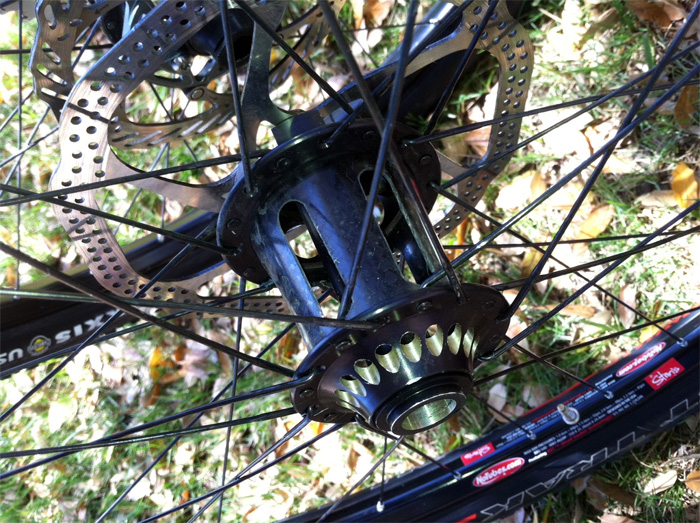History has been marked by occurrences that have shifted current thinking, or current habits. Natural disasters have prompted changes in building regulations. Large scale warfare has resulted in sanctions on entire countries. A deteriorating environment has pushed governments to limit vehicle emissions. Acts of terrorism have resulted in more frequent removal of your belt and shoes at airports. None of this is trivial.
Bikes are quite a long way removed from any of that. For many, they are a tool to ply a trade. For others just a form of transport, a hobby, a passion – or a fusion of all of these. Still, the technical development of bikes and their components has created huge change for us – the users – over time. Pneumatic tyres, indexed shifting, suspension, then quality suspension, disc brakes (and hydraulic disc brakes) and of course tubeless systems, efficient dual suspension bikes, 29″ wheels, 650b wheels, MTB tubulars… the list goes on.
Few of these changes have happened by chance. Usually a fairly brilliant mind has been involved. One such case is that of Kappius Components. As Russell Kappius puts it, you can have one too many critical failures of a component until you are certain there must be a better way to make it.
The Kappius Evolution hub has a number of unique features. Primarily, you do away with the free hub body. In the same way that bottom brackets have become wider, the BB spindles thicker, and the bearings larger – this is in part what is taking place here. The free hub spline has placed a limitation on bearing size, and the cassette depth has limited bearing placement. The main downfall of just about any rear wheel ends up being the free hub. Either it develops play and shifts poorly under load, or perhaps the engagement system wears out prematurely and spins – or even becomes fixed! These are but a few common problems. Worse still – often spares are not readily available, especially if you’re in the middle of a Stage Race somewhere. Having to buy a new wheel set is not a great result.
So the Kappius design really aims at improving durability. The inside of a SRAM XX cassette is hollowed out to make room for the massive 240 point engagement system. 240?? Yep. That means lots of clicks – and super fast take up. This element is less of a concern for open road racing (where you just about never hear a freewheel) but is highly advantageous for any racing that involves frequent accelerations. And the durability of larger, well spaced bearings bodes well for Marathon and Stage Race MTBers. It is great to be able to disassemble your rear hub quite easily for maintenance – but isn’t it even better if you don’t have to do so after Stage 5?
So who are the hubs best for? Well, probably just about anyone who requires something high performance and durable. The rear hubs is available in road versions, 9mm QR versions and through axle. The front is made for QR15 and Lefty, with 20mm axle compatible models in development. So far they are a high end hub, especially as you are tied to high level cassettes. But with so much interest in the designs from big manufacturers, maybe this will create an industry shift?
We will be aiming to test out a set of wheels with Kappius hubs at the Breck Epic this August, and will give you a thorough review after that six days of quality mountain biking.

